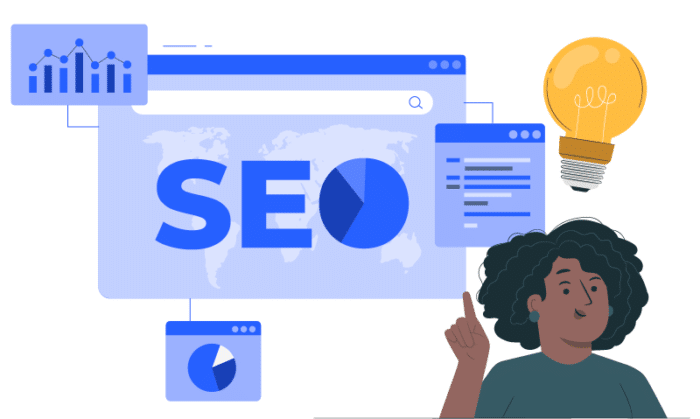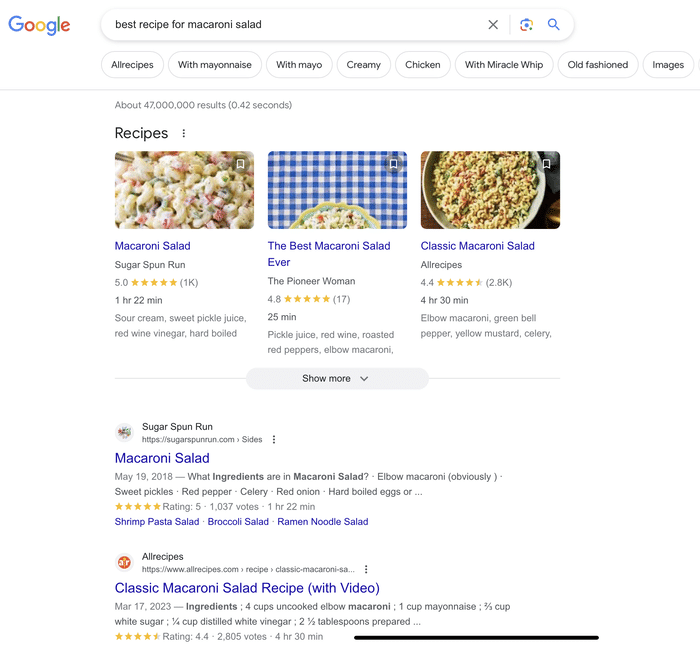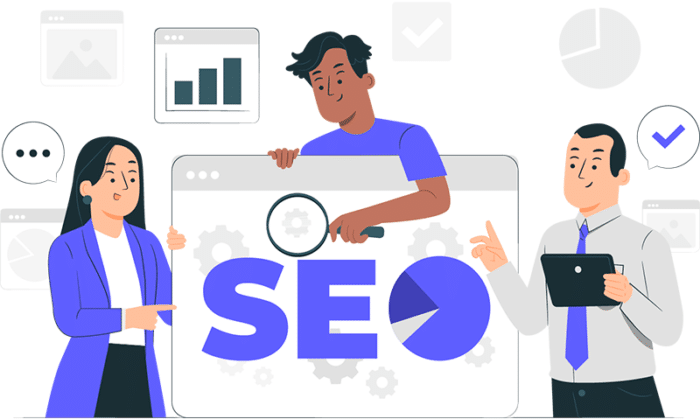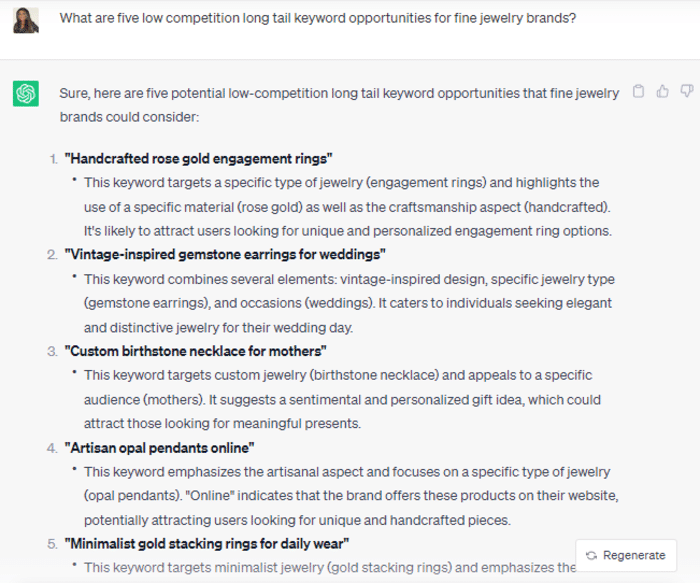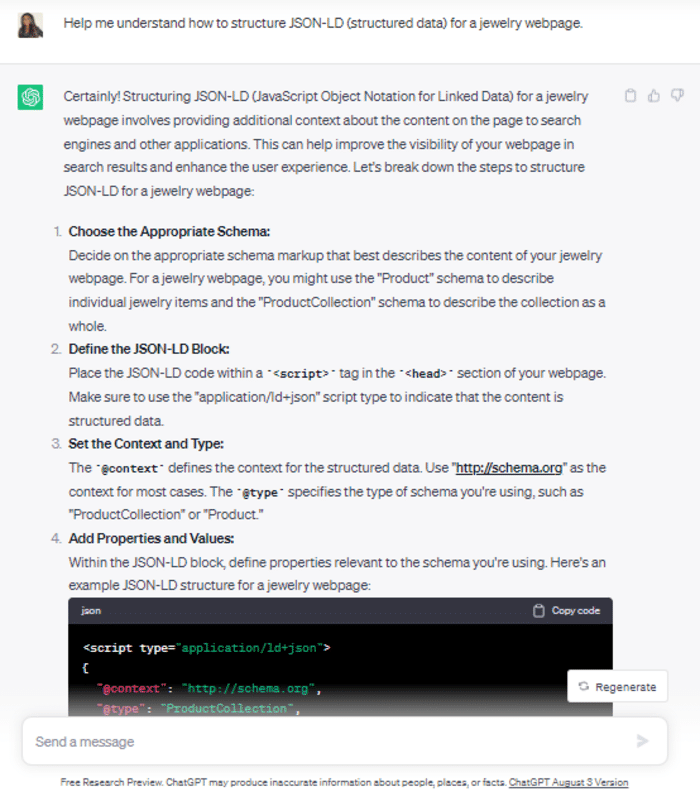Simple SEO Tips for Beginners (What You Really Need to Know)
If you’re just beginning your career in SEO, you’ve landed at the right place.
This article will highlight all the SEO tips you need to know to propel your career in the right direction, starting with understanding the fundamentals of SEO.
As someone just starting their career in search engine optimization (SEO), it can feel like a daunting task. To truly master the art of getting your website to appear at the top of the organic search results takes time and a deep level of understanding core SEO principles.
With the abundance of content already likely existing around your product, service, or idea how can you successfully and effectively stand out from the crowd?
That’s where mastering SEO and having a firm understanding of best practices comes into play.
What is SEO exactly?
SEO is the practice of improving your site’s content and pages to increase your ranking in the search engine results pages (SERPs).
To successfully do so, SEO practitioners must leverage a healthy mix of tried and true and emerging tactics to ensure their web pages are primed for optimal positioning.
Knowing that you must incorporate historical and new age SEO tactics, it’s important to first understand what’s always worked to help your site rank higher in the SERPs.
SEO Has Stayed the Same (In Some Aspects)
Many SEO practitioners would argue SEO best practices are constantly changing.
Google, however, disagrees.
In fact, a recent tweet from Google SearchLiason points to a statement Google made in 2002: Make pages for users, not for search engines.
After over 20 years Google claims ranking in the SERPs is contingent upon creating a people-first experience.
Creating a people-first experience starts by adhering to long-standing SEO principles.
Imagine you click on the first blue link in the SERPs to find a homemade chocolate chip recipe.
You trust that this content is likely highly valuable if it’s appearing at the top of Google’s coveted search results.
You can’t wait to read more to find out how to make delicious chocolate chip cookies.
Instead you’re greeted with paragraphs of useless text. Text that’s designed to rank higher in the search results rather than supply you with the actual information you need.
You can’t even find the actual recipe for the cookies until you scroll down to the bottom of the page.
When you navigate away from the page, you’re left with dissatisfaction, frustration, and a negative user experience. Even one of these feelings will likely lead to a lost customer and a poor perception of your brand.
This is where people-first experience comes into play.
A people-first experience is one in which the end user is at the core of your content. That means you’re avoiding stuffing irrelevant keywords in your content, not linking to pages that don’t bring value or broken links, your content is thin or not useful and much more.
Here are a few ways SEO has remained the same over the years and best practices you should continue to follow.
- Your on-page content is good and relevant. Readers can and should be able to find exactly what they’re searching for easily.
- There is enough text on-page. More text isn’t necessarily better but there must be enough to convey your message clearly. Most content marketers aim for around 1,000 words when drafting a post.
- Your HTML tags are accurate. A semantically correct HTML tag will inform the browser and the developer about its content. This helps improve your content’s discoverability.
- You have internal links and outbound links. Internal links point to other relevant pages on your site. This helps keep visitors on your site rather than navigating to a different site. Outbound links direct visitors to an outside resource. Both link types are valuable for guiding users to the next stage of their content journey. You can leverage a link building tool to easily identify quality directories, forums, websites and more.
- You are optimizing your content with relevant keywords. Keyword optimization remains an integral component of SEO. However, keywords should be dispersed strategically. Integrate your keywords in a natural, authentic manner. Include your keywords in your landing page URL, anchor text of inbound links, page title, headings, and meta description.
How SEO Has Changed (And What You Actually Need to Know)
We know Google says SEO principles remain unchanged: create quality, people-first content.
But we also know SEO tactics and best practices do change.
They change so frequently that SEO professionals must stay up to date on what’s working and what isn’t.
In this section, we’ll share what’s currently working and what you need to know as you begin your SEO career.
Insert keywords into your content naturally
It’s hard to imagine a time when it was rewarding to include as many focus keywords in your text as possible (also known as keyword stuffing). As a SEO beginner, it’s crucial to consider this tactic null and void.
Keyword stuffing not only provides a negative user experience but it also will get your site penalized by search engines. Rather than injecting your focus keyword in as many places as possible, use your focus keyword only where it makes sense.
Disperse your focus keywords authentically and naturally within the context of your content. Only use your keywords if and where it makes sense to include them.
Always take into consideration the reader’s experience. Will they find value in what you’re writing? If the answer to this is yes, then you’re on the right track.
The first blue link isn’t your end goal
The search experience today is vastly different than what it looked like even a few short years ago. Historically, achieving the first blue link in the search results was the end goal.
This meant your site was at the top of the search results and therefore more likely to get clicked. In turn, you’d get more unique visitors than sites further down in the SERPs.
Today, the search experience has shifted to a more visual experience.
For example, if you search for “best recipe for macaroni salad” the first results returned will be an image carousel. In this example, three different websites are surfaced at the top of the SERPs.
The image carousel takes up valuable screen space and will likely be the first result to capture the searcher’s attention.
In this instance, the first traditional blue link isn’t better. Instead the SEO practitioner would want to optimize its page to achieve an image carousel result.
The value of link building is decreasing
Link building remains relevant in 2023. But, the quantity of links a page has is no longer a significant ranking factor.
In the past, people made careers out of link building activity. They’d spend an ample amount of time reaching out to external sites to get a link placed.
In fact, as an SEO practitioner, you’ve likely seen link outreach emails firsthand.
This SEO tactic has become risky ever since Google’s Penguin update in 2012. The risk can outweigh the reward as link building has become more monitored than ever before. If your page shows signals of trying to monopolize this tactic in a way that negatively affects a user’s search experience, your site could be negatively impacted.
Google itself states, “Backlinks as a signal have a lot less significant impact compared to when Google Search first started out many years ago. We have robust ranking signals, hundreds of them, to make sure that we are able to rank the most relevant and useful results for all queries.”
Google’s Helpful Content System updates point to the search giant being more concerned with the quality of content, so we recommend SEO professionals shift their focus and attention there.
Take an SEO Course
Perhaps the best way to learn about SEO is from skilled practitioners who have years of experience in the field. These industry experts have an immense amount of experience and have perfected their craft over many years.
A winning SEO course offers a comprehensive, wide range of topics written by SEO experts. These courses range from SEO basics to analyzing a UX audit. Courses will be broken down into different sections for easier content consumption and for the end user to pick and choose the courses most relevant to them.
Not only are these courses worthwhile, they’re also available to you at an affordable price. Whether you’re just beginning your career in SEO or you’re looking to improve your skills, a SEO course benefits your career trajectory and expands existing knowledge.
Additionally, SEO-specific podcasts, webinars, and conferences are a great way to strengthen your skillset. A few podcasts we’d recommend include:
- UNmiss
- Search Engine Journal Show
- SEO Pioneers
- The Strategy Sessions Podcast
- Marketing O’Clock
- Search Off The Record
Use Google to Your Advantage
If you’re going to use one SEO tool, make that tool Google. A simple Google search can provide a lot of clarity.
When conducting keyword research, for example, each keyword and phrase will deliver different results. Before taking the time to create content, do a simple Google search of the keyword term or phrase you’re targeting.
Analyze what is delivered in the search results.
For example, if you’re a jeweler and want to rank for “women’s jewelry” see what types of search results are returned.
Do you see an image carousel at the top of the SERPs?
If the answer to this question is yes, you’ll want to incorporate more high quality, relevant images on your landing pages to achieve an image carousel result.
Complete this same exercise for each of your keywords you’d like to target as each keyword may need a different SEO strategy to improve visibility.
Update Your Content Regularly
Just as SEO best practices change over time, so too do the topics of your existing content.
Content isn’t a set it and forget it endeavor.
It needs to be consistently and regularly updated to remain relevant and valuable to your end users. This ties back to Google’s emphasis on creating helpful content.
If you write a blog post about the beauty brands in 2005, this information is likely to become very outdated ten or twenty years from its original publish date. In fact, this post likely requires updating on a yearly basis to stay current.
Continue to update your content as necessary to become the most valuable resource possible. Remember you don’t want to change the URL as you update your content so choose a URL that is easily adaptable.
Never use a number in the URL or the format to ensure the content doesn’t become a mismatch in the future.
Incorporate AI (Where Applicable)
We know AI is a hot topic at the moment. It can benefit nearly anyone and has a large variety of use cases.
A vast array of job functions are seeing the benefit of adopting AI in terms of revenue. 30% of marketing and sales AI adopters cited a 6-10% increase in revenue after implementing the technology.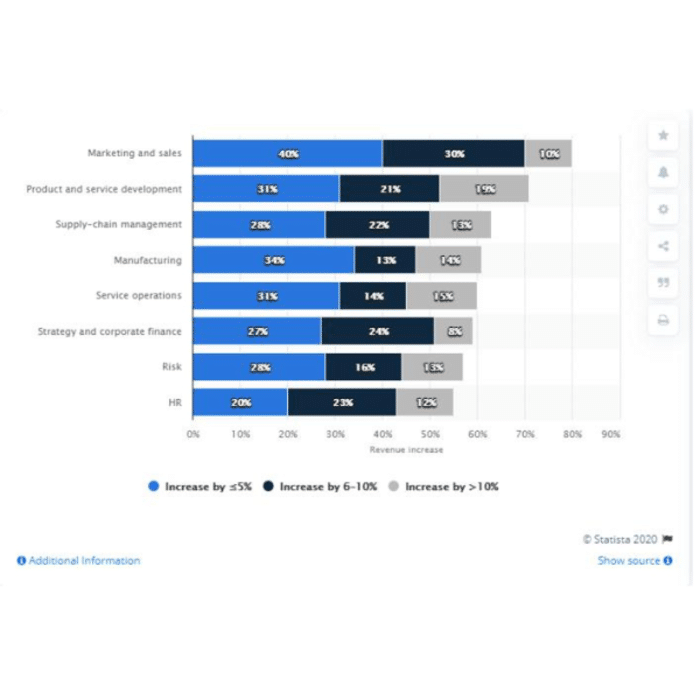
For SEO in particular AI can be leveraged in numerous ways to improve processes.
AI for Content Optimization
There are several notable tools SEO professionals can leverage to optimize on-page content. A few of these tools include ChatGPT, Bing Chat, Google’s Bard AI, and ChatSonic. These tools are capable of the following:
- Identifying trending topics in your industry
- Discovering content gaps
- Identifying keywords you should be targeting
- Conducting a competitor keyword analysis
- Creating content outlines
- Discovering the optimal content layout (subheadings, keywords to include, and more)
- Creating topic questions that answer searchers’ questions
- Topic research
- Uncovering the optimal length of content on your given topic
For example, if you’re a jeweler and interested in uncovering keywords you should target, the following prompt could help you discover untapped content opportunities.
AI for Technical Optimization
AI can also be used for technical optimization opportunities. Some of these opportunities may include:
- Conducting website audits
- Optimizing for Core Web Vitals
- Analyzing user behavior on a page
- Analyzing competitors’ websites and strategies
- Implementing structured data markup
- Suggesting optimal sitemaps and identifying crawl errors
For example, using a similar example as before, if you’re a jeweler and want to implement structured data, the following prompt could help you implement structured data markup correctly.
Becoming an Expert Doesn’t Happen Overnight
To become well-versed in SEO takes practice, time, and patience.
You’ve already taken the time to educate yourself on SEO tips for beginners.
The next step is taking this knowledge and putting it into practice.
SEO can be a complex and constantly changing landscape. Having the knowledge and tools to navigate it effectively starts with education, commitment to consistent learning, and building on a solid foundation. You’ve already taken the first step to gain a foundational understanding of basic SEO concepts.
Conclusion
To excel in SEO and boost earnings:
– Embrace SEO wholeheartedly. True experts relish experimenting with techniques.
– Specialize in one SEO aspect like content creation, keyword research, or link building, but be familiar with all. If leading teams is your goal, master all SEO facets and motivate people effectively.
– Learn using methods you love, be it blogs, podcasts, social media, or books. Make the experience enjoyable.
– Always apply what you learn. The best experts aren’t just learners; they actively implement and test.
– SEO isn’t just about high rankings. It emphasizes quality content, understanding the value of traffic, strategizing effectively, and securing legitimate links.
– SEO complements other strategies like social media, branding, referrals, and E-E-A-T (Experience, Expert, Authority, and Trust).
Keep in mind, Google updates its algorithms over 7,000 times annually. It’s impossible to track every change. Focus on serving your audience better than rivals, and you’ll align with any algorithm shifts.
Your next course of action is to continue to build upon these concepts, hone your skills, and experiment with the techniques mentioned above. It’s also worthwhile to take a more comprehensive SEO course to solidify and build upon the foundation you’ve already established by reading this article.
SEO FAQs
What is SEO?
Search engine optimization (SEO) is the practice of optimizing your website through both on-page and off-page elements to improve your site’s chances of ranking higher in the search engine results pages.
Why is SEO important?
SEO is crucial to help your website stand out in the competitive search results. When done right, SEO can improve search engine visibility and discoverability, which can lead to more sales, appointment bookings, and other conversion opportunities.
How do keywords impact SEO?
It’s integral to select the right keywords when optimizing your content to improve search rankings. Your focus keywords help Google crawlers better understand the context of the website. Keyword research tools can help you determine which keywords to incorporate into your copy.
What is local SEO?
Local SEO is the practice of optimizing a website and its content to attract a specific audience, usually those looking for a nearby business. SEO practitioners inject localized copy (such as nearby streets or landmarks, store-specific promotions, store events, and more) to attract and engage the local community.
Can I do SEO myself?
SEO is complex and takes time, patience, and dedication to master. It also requires consistent education as SEO best practices change and evolve often. Depending on your level of knowledge and your bandwidth, it may be worthwhile to invest in a SEO agency to do the heavy lifting for you.
What is on-page SEO?
On-page SEO focuses on the on-page elements of your website such as optimizing your content, headings, meta description, image alt tags, and more. Optimizing on-page elements in conjunction with off-page SEO can help improve search results rankings.
What is off-page SEO?
Off-page SEO focuses on optimizing actions taken off your website such as building high-quality backlinks, monitoring your online reputation, podcasts, social media, and more.
Will I see results from SEO right away?
SEO is a long-game endeavor and results usually won’t occur right away. As a best practice, it’s important to consistently update your website’s content and keep a pulse on what your competitors are doing as well to identify areas of opportunity to excel.
How often do algorithm updates occur?
Search engines regularly update their ranking algorithms so it’s imperative to keep up with these changes and how they may impact your site’s rankings. Several times a year, Google makes significant, broad changes to its search algorithms which may impact your site.
How will I know when Google makes an algorithm update?
You can keep up with Google’s latest ranking updates to ensure your site isn’t affected by regularly visiting its Google Search Status dashboard.

